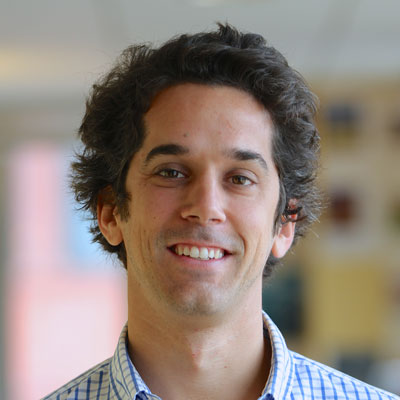- ON THE DECADE
- THE DECADE'S CAMPAIGN
- REPORTING ON PROGRESS
- THE DECADE'S PROGRAMMES
- FOCUS AREAS
-
- Access to sanitation
- Financing water
- Gender and water
- Human right to water
- Integrated Water Resources Management
- Transboundary waters
- Water and cities
- Water and energy
- Water and food security
- Water and sustainable development
- Water and the green economy
- Water cooperation
- Water quality
- Water scarcity
- FOCUS REGIONS
- RESOURCES FOR
- UN e-RESOURCES
2015 UN-Water Annual International Zaragoza Conference. Water and Sustainable Development: From Vision to Action. 15-17 January 2015
Interviewing Paul Reig, World Resources Institute
Mr. Paul Reig is Associate at the Markets and Enterprise Programme, World Resources Institute (WRI)

What would you like to see come out of the Zaragoza conference?
I think what I’d like to see come out of the conference is a set of recommendations on tools and guidelines that are available in the public domain based on the experience of different stakeholder groups in using those for their own purposes. Basically looking to see how different stakeholder groups can share their experience by using tools and guidelines to improve water resources management and particularly highlighting those that could help implement SDGs.
What are the main challenges for implementing the sustainable water for all?
One of the big challenges is that although water is a global issue it’s a very local and specific challenge that varies greatly. There’s a huge range of challenges that vary by location and I think that consistently tackling those from a top down approach is very difficult without understanding the local context and the needs of local stakeholders.
The role of civil society – will it be more important for the SDGs than the MDGs?
Hard to tell. Their role will be huge but I wouldn’t limit it to that, I think all stakeholders including the private sector have a large role in helping meet the SDGs.
How is your organization contributing?
I think I’d like to highlight WRI’s water programme, which is a programme that focuses on water coming from a global perspective with presence and offices around the world. A programme that aims to provide robust science based information in the public domain in a way that is very comprehensive, so that non-technical audiences can understand the complexities of these issues and can act upon this information. That’s the role we aim to play.
>> Conveners and partners
>> Objectives and expected outcomes
>> Conference flyer
>> Agenda
>> Structure
>> Participants
>> Accommodation
>> Travelling to Zaragoza
>> Your stay in Zaragoza
>> Map
>> Rio+20
>> Water and sustainable development
>> Global commitments on water
>> A post-2015 global goal for water
>> Water and the Open Working Group (OWG)
>> The role of actors involved
>> Capacity development
>> Financing and economic instruments
>> Governance frameworks
>> Technology
>> Water, Sanitation and Hygiene (WASH)
>> Water Resources Management
>> Water Quality
>> Risk management
>> Technical visit: La Cartuja
>> Technical visit: The Ebro River Basin Authority and its Automatic System for Hydrologic Information (SAIH)
>> Technical visit: Expo + Water Park
>> New sources: Wastewater reuse
>> Local level actions in decentralized water solidarity towards the achievement of the Sustainable Development Goals
>> Water Footprint Assessment
>> Technological advances and Water Policy
>> Cultivando Agua Boa Programme
>> CODIA and water and energy in LAC
>> The fulfillment of the human right to water and sanitation
>> Achieving sustainable water for all in LAC
>> Achieving water security for Asia and the Pacific
>> Ensuring implementation of the water-related SDGs in Europe
>> Setting the scene
>> Academia
>> Business
>> Civil society
>> Governments and local authorities
>> Media and Communicators
>> Multi-stakeholder dialogue on tools for implementation
>> Cases
>> Conference daily
>> Conference Communications Report
>> Discussion forum
>> Information briefs on Water and Sustainable Development
>> Interviewing conference participants
>> Overview Papers
>> Presentations from participants
>> Session Reports
>> Tool Papers
>> Toolbox
>> Twitter Activity Report
>> Video recording of sessions
>> Video interviews with conference participants
Copyright | Terms of use | Privacy notice | Site Index | Fraud alert | Help




